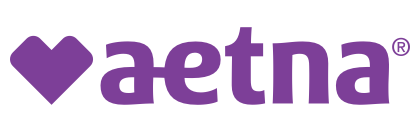Autism In the Work Place
Creating Inclusive Workplaces for Autistic Individuals

Unlocking Hidden Talent: How the Workplace Can Embrace Autism
As an autistic individual, mental health advocate, and clinician, I want to ask a pressing question:
How are we ensuring that our workplaces are welcoming, safe, and ready to embrace the brilliance of autistic individuals eager to contribute?
Too often, the answer is silence. Across industries, including mental health, a profound lack of understanding about Autism Spectrum Disorder (ASD) leaves many organizations unprepared—not just to treat autistic patients but to recognize and nurture autistic employees. The result? A staggering 85% of autistic individuals with college or graduate degrees remain unemployed. These are not individuals who lack intelligence, passion, or capability. These are talented, driven people ready to work but sidelined by workplaces that don’t know how to include them.
Autism and IQ: Debunking the Myths
Let’s address a common misconception: autism does not equate to intellectual delay. The statistics tell a very different story:
- The majority of individuals with Level 1 autism (high-functioning autism) have IQ scores within the average range (85-115) or higher.
- 70% of autistic individuals fall into the average or above-average IQ range, with many excelling in areas like logical reasoning, memory, or pattern recognition.
- 25% are classified as gifted (IQ ≥ 130) or highly gifted (IQ ≥ 145), often demonstrating exceptional abilities in specialized fields such as mathematics, computer science, or the arts.
In fact, compared to the 2-5% of the general population classified as gifted, this figure is significantly higher within the autism community. These individuals possess a wealth of potential that, when properly supported, can revolutionize industries.
Special Interests: Passion Meets Productivity
Autistic individuals are known for their special interests—deeply focused passions pursued with intensity and joy. These are not casual hobbies; they are lifelines of purpose and fulfillment. From robotics to history, coding to environmental science, these interests often guide career choices, turning work into a natural extension of their passions.
When workplaces embrace these interests, the results can be transformative. Autistic employees become deeply engaged, productive, and innovative contributors. Their unmatched dedication and expertise drive results that not only meet but often exceed expectations. Organizations that recognize and nurture these passions unlock a reservoir of potential that few other employees can match.
Exceeding KPIs: A Case for Inclusion
When given the right environment, autistic individuals routinely outperform their neurotypical counterparts in meeting Key Performance Indicators (KPIs):
- Precision and Attention to Detail
- Autistic employees excel in tasks requiring accuracy and consistency, such as quality assurance, data analysis, and software testing.
- Specialization and Deep Focus
- Many align their careers with their special interests, achieving exceptional competency and driving superior results.
- Consistency Over Time
- Autistic employees bring unparalleled reliability, often exceeding expectations in customer satisfaction, process adherence, and productivity.
Real-world examples prove this potential:
- JPMorgan Chase’s Autism at Work initiative reported that autistic employees were 90-140% more productivethan their neurotypical peers.
- Aspiritech, a software testing company, found that autistic employees were 20% more productive in specialized roles when their needs were met.
These numbers aren’t just statistics; they’re evidence that inclusion is not just an ethical imperative but a competitive advantage.
The Interview Problem
Despite their strengths, many autistic individuals remain unemployed due to systemic barriers—starting with the interview process. Interviews often prioritize social rapport over skills, creating significant hurdles for neurodiverse candidates:
- A lack of eye contact might be read as disinterest.
- Robotic or scripted responses could be misinterpreted as dishonesty.
- Stating facts without emotional inflection might seem arrogant.
- Small gestures—a handshake that feels different, a smile that lingers too long—can leave the wrong impression.
The Need for Quiet and Solitude
The tendency to focus deeply on tasks, coupled with a need for solitude, can be misinterpreted as a lack of teamwork or engagement with the group. However, it’s crucial to understand that these accommodations—time for solitude and calming spaces—are essential for the well-being of autistic individuals. Without them, overstimulation can lead to an autism meltdown, a highly distressing experience characterized by emotional or sensory overwhelm. Recognizing and supporting these needs not only fosters a more inclusive workplace but also enables autistic individuals to excel without compromising their mental and emotional health.
For autistic individuals, these behaviors are not flaws; they are natural expressions of a different way of engaging with the world. Yet, traditional hiring processes penalize them, overlooking their incredible potential.
The Call to Action
While it is important for autistic individuals to develop strategies to work effectively with neurotypical colleagues and practice social interactions, it is equally important for organizations to foster understanding and inclusivity. Educating neurotypical staff about neurodiversity, creating interview processes that evaluate skills rather than social rapport, and fostering environments where differences are respected can help us co-exist and thrive together.
I charge all leadership to become more aware and train staff on neurodivergence. Ask yourself: does your onboarding process accommodate those with developmental disabilities? Are you fostering a workplace culture that values and supports everyone’s strengths, creating opportunities for autistic individuals to succeed?
Imagine how many exceptional contributors organizations may have missed simply because they didn’t recognize or understand the unique qualities of autistic individuals during the hiring process. How many key players—who could have enhanced productivity, reduced errors, and increased efficiency—were overlooked because they didn’t fit the mold of a neurotypical interview?
Perhaps the candidate couldn’t make eye contact, appeared robotic due to scripted responses, or was misjudged as aloof, arrogant, or disingenuous for stating facts without emotional inflection. Maybe their handshake felt unusual, their smile lingered a little too long, or their interruptions stemmed from enthusiasm and not disrespect.
How many valuable employees, once hired, were bullied by teammates who mistook their curiosity or directness for defiance, or dismissed their contributions because they didn’t understand the social cues of neurodivergence? How many organizations let go of talent that could have driven innovation, boosted performance, and achieved the growth they needed simply because no one was educated on autism, its signs, and the ways to accommodate and empower neurodivergent individuals?
As executive leaders, recruiters, and business owners, it’s time to reflect on these questions and embrace the transformative potential of neurodiversity in the workplace. Educating your teams, rethinking hiring practices, and fostering an inclusive culture isn’t just the right thing to do—it’s the smart thing to do. By unlocking the strengths of autistic individuals, your organization can tap into a wealth of creativity, dedication, and brilliance, paving the way for unparalleled success.How are you contributing to this change?
The question is: will you seize this opportunity, or let it pass you by?
Let’s start the conversation.
Written By : Vannah Hughes,MA,NCAC-II,LCDC, RYT-200
References
- American Psychological Association. (2024). Combatting neurotypical biases in hiring: Autism and the benefits of inclusion. Retrieved from https://blog.apaonline.org
- JPMorgan Chase. (2022). Autism at work: Harnessing the power of neurodiversity. Retrieved from https://www.jpmorganchase.com
- Forbes Human Resources Council. (2022). Neurodiversity and the workplace. Retrieved from https://www.forbes.com it is important for autistic individuals to develop strategies to work effectively with neurotypical colleagues and practice social interactions, it is equally important for organizations to foster understanding and inclusivity. Educating neurotypical staff about neurodiversity, creating interview processes that evaluate skills rather than social rapport, and fostering environments where differences are respected can help us co-exist and thrive together.
Thrive Well Blog









